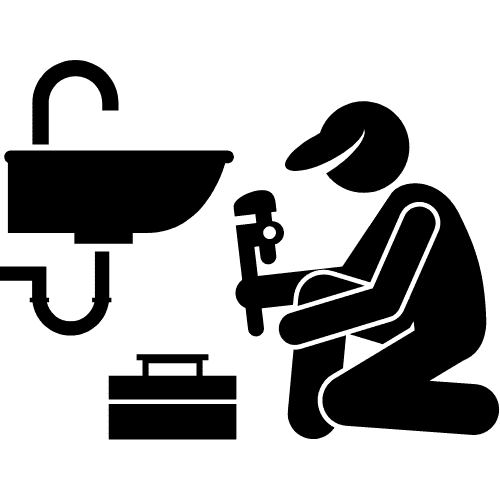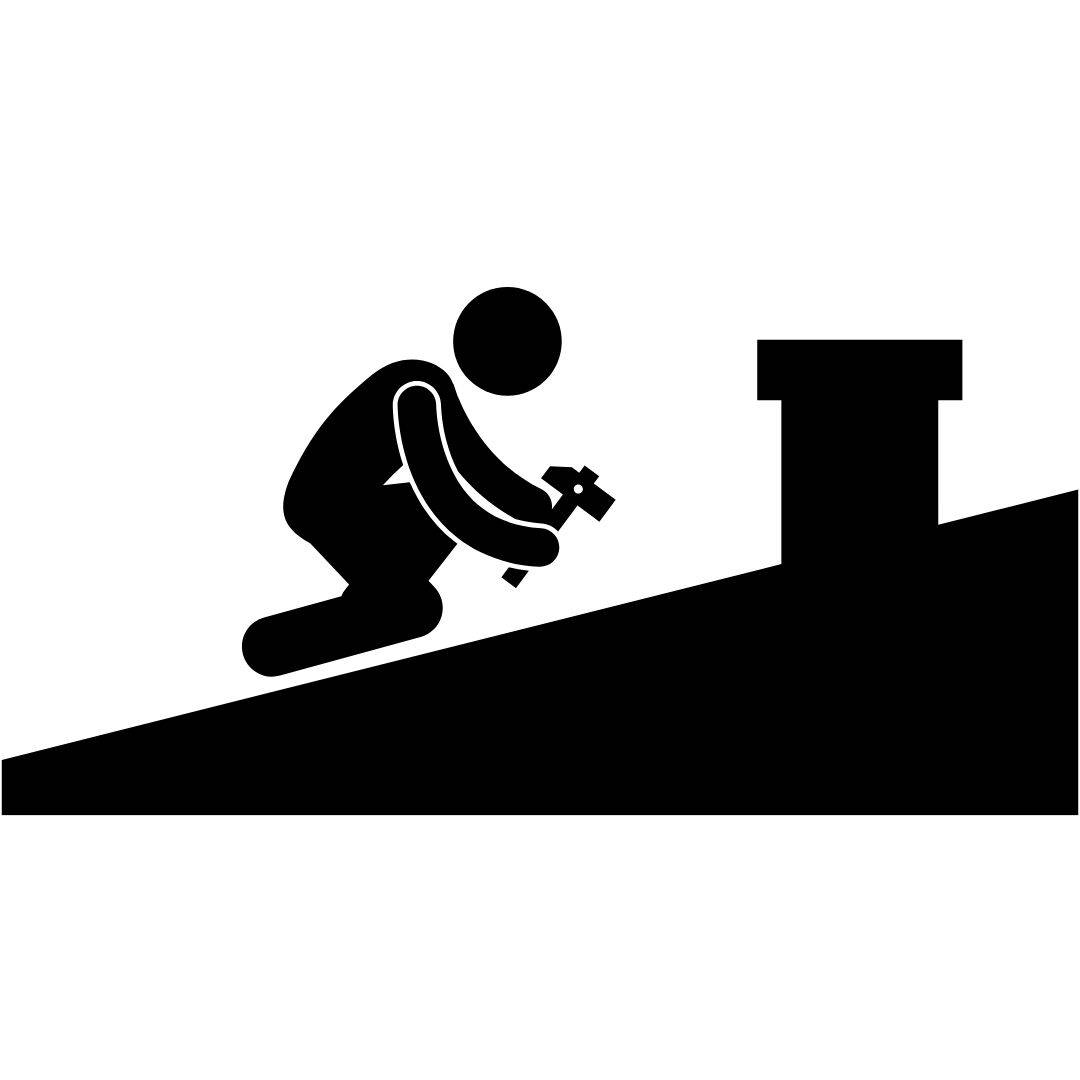Construction Cost Estimator in Gainesville, FL
At Estimate Florida Consulting, we specialize in providing accurate construction cost estimates tailored to the unique needs of clients in Gainesville.The average cost of building a house nationwide stands at approximately $394,800+. This figure can vary significantly, ranging from $250,000 to over $5,080,000,or more contingent on various factors such as the type and size of the project, location, prevailing labor and material costs, and the extent of customization desired.Whether it’s residential developments, commercial spaces, or public infrastructure projects, understanding the intricacies of construction cost estimation in Gainesville is key to successful project management.
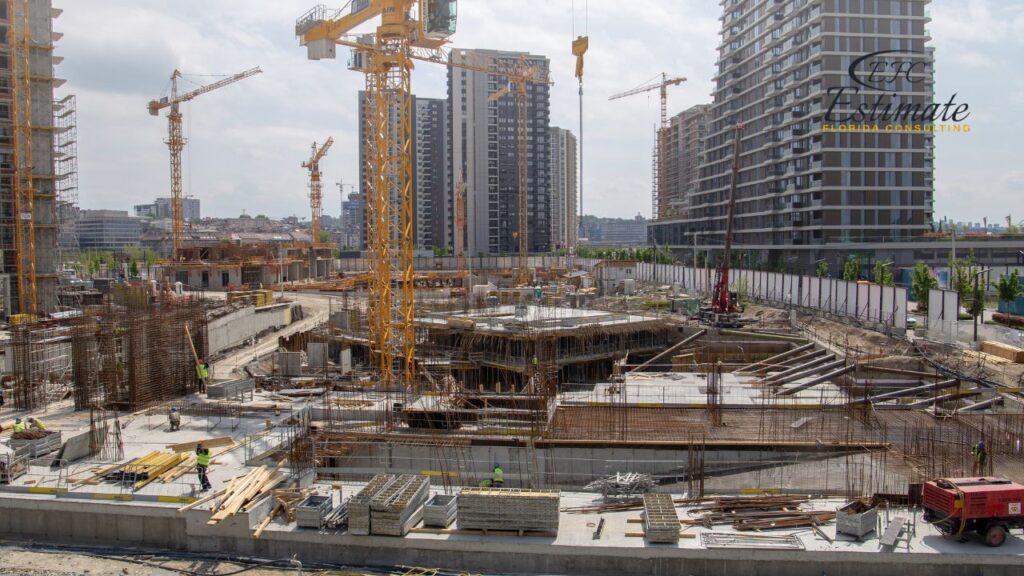
Cost of Construction a 10 Story Building
Constructing a 10-story building involves a myriad of costs, ranging from land acquisition, design and engineering fees, construction materials, labor, to regulatory and permitting fees.
Cost Component | Estimated Cost Range |
Land Acquisition | $500,000 – $5,000,000+ |
Design and Engineering | $200,000 – $2,000,000 |
Construction Materials | $5,000,000 – $15,000,000 |
Labor | $2,500,000 – $10,000,000 |
Regulatory and Permitting Fees | $100,000 – $500,000 |
Utility Connections | $50,000 – $300,000 |
Landscaping and Exterior | $100,000 – $1,000,000 |
Interior Finishing | $1,000,000 – $5,000,000 |
Contingency (10-20%) | Varies (apply to subtotal) |
Total Estimated Cost | $9,450,000 – $38,800,000+ |
90% More Chances to Win Projects With Our Estimate!
- Multi-Family Building
- Hotel Building
- Hospital Building
- Warehouse Building
- School & University Building
- High-Rise Building
- Shopping Complex
- Data Center Building
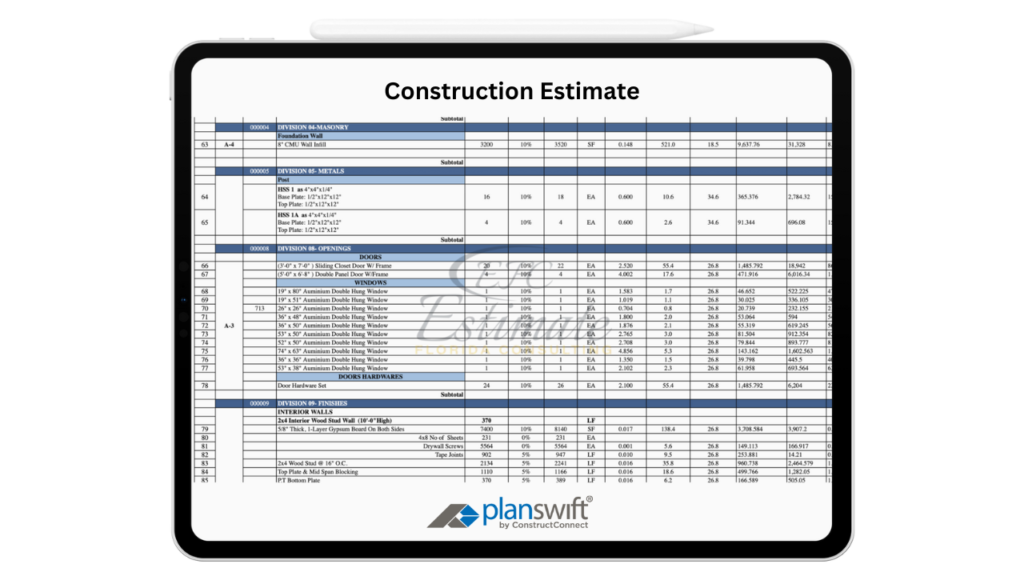
Basic Construction:
Includes the cost of simple design, framing, and essential electrical and plumbing work. This typically covers the bare minimum required for a functional house without extensive customization or luxury finishes.
Standard Finishes:
Incorporates more detailed architectural designs, better-quality materials, and upgrades in fixtures and finishes. Costs in this category account for a comfortable, well-appointed home that meets most homeowners’ expectations.
High-End Finishes:
Covers top-of-the-line materials and custom features, including high-end appliances, custom cabinetry, hardwood floors, elaborate trim work, and advanced home technology. This category is for those looking to build a luxury home with superior aesthetics and functionality.
Additional Factors to Consider:
- Land Costs: The price of the land is not included in these estimates. In Gainesville, land costs can vary widely depending on location and size.
- Permit and Fees: Local permits and fees necessary for construction projects can add to the overall cost.
- Landscaping and Exterior: Costs related to landscaping, driveways, and external amenities are not included in this table but can significantly impact the total budget.
- Market Fluctuations: Material and labor costs are subject to market changes, which can affect the final price.
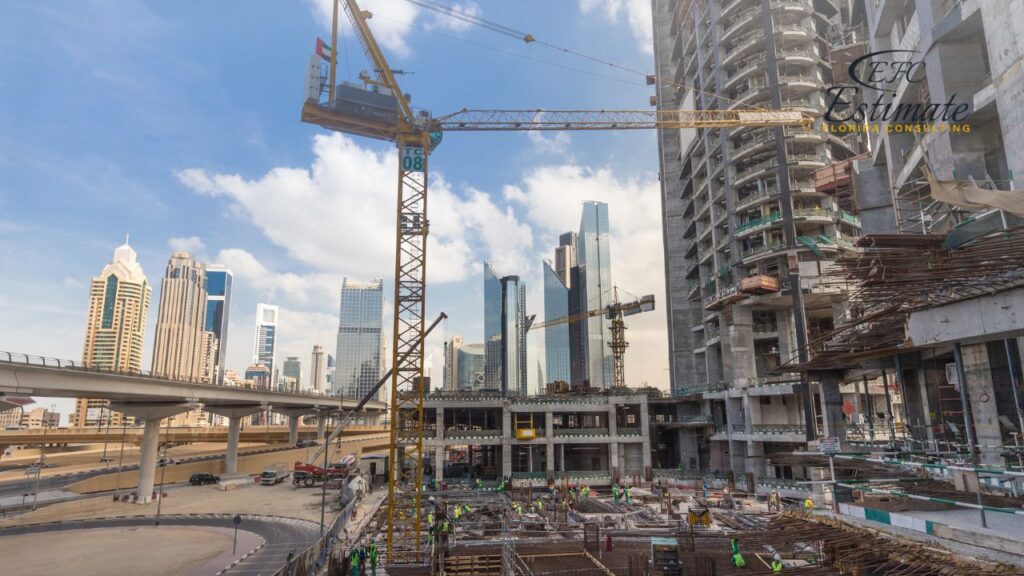
Factors Influencing Construction Costs
Market Trends and Material Costs
The construction industry in Gainesville is subject to various external factors that influence market trends and material costs. Economic growth, supply chain dynamics, and seasonal variations all play a role in shaping the cost of construction materials. These fluctuations can have a significant impact on overall project expenses, making it essential for stakeholders to stay informed about current market trends. By closely monitoring material costs and adjusting budgets accordingly, construction professionals can effectively manage project finances and mitigate the risk of budget overruns. Understanding the broader economic landscape and anticipating potential changes in material costs are key strategies for ensuring accurate budgeting and successful project execution.
Labor Costs
Labor costs in construction vary significantly depending on the region, the type of work, the level of expertise required, and current market conditions.
- Unskilled Labor: For general laborers with less specialized skills, hourly rates can range from $15 to $25. These workers might handle tasks like site preparation, cleanup, and basic assistance to skilled tradespeople.
- Skilled Labor: Skilled labor includes carpenters, electricians, plumbers, and other tradespeople with specific skills and certifications. Their hourly rates typically range from $25 to $50 or more, depending on their trade and level of experience.
- Specialized Professionals: Highly specialized professionals, such as architects, engineers, and project managers, can command higher rates, often exceeding $50 to $100+ per hour, reflecting their advanced training and critical role in ensuring the project’s success.
Get 5 New Leads in the Next 7 Days With Our System
- Multi-Family Building
- Hotel Building
- Hospital Building
- Warehouse Building
- High-Rise Building
- Shopping Complex
Regulatory and Permitting Costs
Navigating regulatory requirements and permitting processes is an integral part of construction projects in Gainesville. The city has specific building codes and permitting regulations that govern construction activities, and non-compliance can result in costly delays and penalties. Therefore, it is essential for project stakeholders to understand and adhere to these regulations to ensure compliance without incurring unnecessary expenses. By proactively addressing regulatory and permitting considerations during the budgeting phase, construction professionals can anticipate associated costs and incorporate them into project budgets. This approach helps streamline the approval process, minimize delays, and avoid costly compliance issues, ultimately ensuring that projects progress smoothly and within budget.
Site-Specific Factors
The location and condition of construction sites in Gainesville can vary widely, and these site-specific factors can significantly impact project costs. Accessibility, soil condition, topography, and the need for site preparation work are all critical considerations that must be carefully evaluated during the budgeting phase. Factors such as site accessibility may require additional resources or specialized equipment, while soil conditions may necessitate soil remediation or foundation reinforcement, adding to project costs. By conducting thorough site assessments and factoring in site-specific factors upfront, project stakeholders can develop realistic budgets that account for potential challenges and contingencies. This proactive approach helps mitigate the risk of cost overruns and ensures that projects are completed on time and within budget.
Construction Cost for 2500 sq.ft House
Estimating the construction cost for a 2500 sq.ft house involves various factors, including location, materials, labor rates, design complexity, and finishes.
Construction Phase | Cost Range per Sq.Ft | Total Estimated Cost |
Basic Construction | $100 – $150+ | $250,000 – $375,000+ |
Standard Finishes | $150 – $200+ | $375,000 – $500,000+ |
High-End Finishes | $200 – $250+ | $500,000 – $625,000+ |
Key Considerations:
- Land Acquisition: Costs vary greatly by location. Prime urban areas are significantly more expensive than suburban or rural sites.
- Design and Engineering: This includes architectural, structural, and MEP (Mechanical, Electrical, Plumbing) design. Complexity, prestige of the design firm, and local rates affect these costs.
- Construction Materials: Costs can fluctuate based on the building design, material choices (steel frame, concrete, glass, etc.), and market conditions.
- Labor: Labor costs depend on the project’s location, the complexity of the construction, and the current demand for skilled labor.
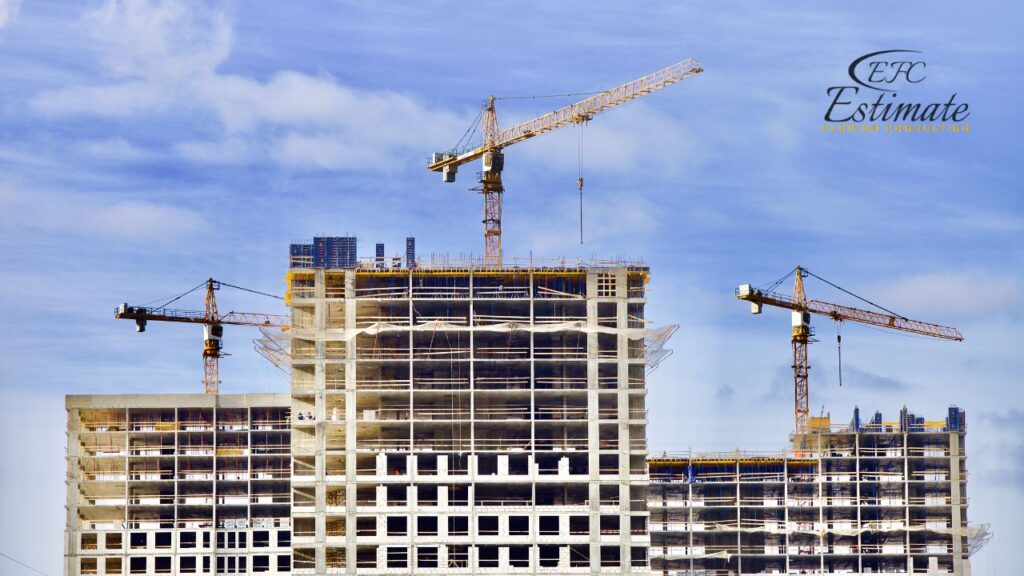
- Utility Connections: The cost to connect to water, sewer, electric, and gas services can vary based on the distance to existing utilities and local fees.
- Landscaping and Exterior Works: Includes parking lots, green spaces, and any outdoor amenities.
- Interior Finishing: Can vary widely based on the level of finish desired, from basic to luxury.
- Contingency: A crucial budget line that covers unexpected costs. The complexity and risk associated with the project will dictate the appropriate contingency percentage.
Navigating the Gainesville Construction Market
Choosing Contractors and Suppliers
Selecting reputable contractors and suppliers is vital for successful construction projects in Gainesville. Look for companies with strong local reputations, competitive prices, and high-quality materials. Prioritize experience and reliability when vetting potential partners. Building strong relationships with reliable contractors and suppliers fosters effective communication and mitigates risks.
Download Template For Construction Project Breakdown
- Materials list updated to the zip code
- Fast delivery
- Data base of general contractors and sub-contractors
- Local estimators

Staying Informed about Local Developments
Gainesville’s construction landscape is dynamic, with regulations, zoning changes, and development plans impacting costs and opportunities. Stay informed about local developments through regular updates from authorities and industry associations. This proactive approach helps anticipate challenges and capitalize on emerging opportunities, ensuring success in Gainesville’s competitive construction market.
Optimizing Budgets with Gainesville's Seasonal Construction Cycles
Understanding Gainesville’s construction cycles can lead to significant savings. The off-peak seasons, typically late fall through early spring, may offer reduced costs due to lower demand for labor and materials. Planning your construction projects during these times can optimize your budget and ensure smoother project execution with less competition for resources.
Benefits of Off-Peak Construction Planning
Cost Savings: During off-peak seasons, the reduced demand for construction services can lead to lower bids from contractors eager to keep their teams busy. This competitive pricing extends to materials suppliers, who may offer discounts to move inventory during slower months.
Faster Permitting Process: With fewer projects in the pipeline, local permitting offices are less congested, potentially speeding up the approval process for your construction plans. This efficiency can lead to earlier project start dates and reduced holding costs.
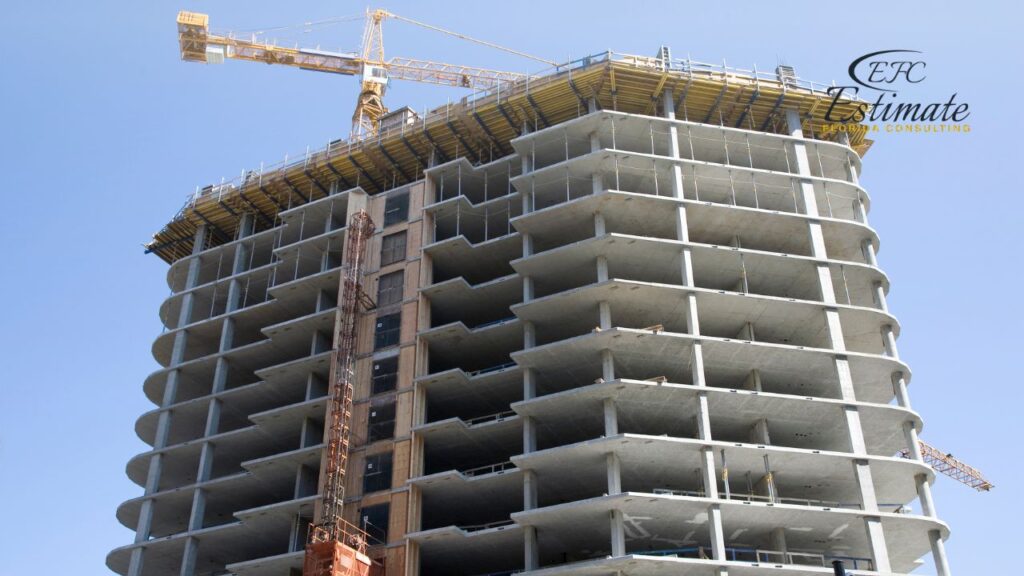
Improved Labor Availability: Scheduling your project during less busy times means you’ll have better access to skilled labor, allowing for more selective hiring and the potential to secure highly sought-after contractors who can bring added value to your project.
Quality Workmanship: Contractors working on fewer projects can afford to dedicate more attention to each task, potentially improving the overall quality of work. The less hurried pace of off-peak seasons also reduces burnout among crews, contributing to higher quality finishes.
Planning for Seasonal Weather Conditions
While planning construction during off-peak seasons offers numerous benefits, it’s also crucial to consider Gainesville’s weather patterns. Late fall through early spring may introduce cooler temperatures and occasional rain, which can affect work schedules and material handling. Effective planning involves:
- Weather-Resistant Scheduling: Build flexibility into your project timeline to accommodate weather-related delays, ensuring critical work stages aren’t rushed.
- Material Protection: Ensure materials sensitive to temperature or moisture are properly stored or scheduled for installation during weather-appropriate windows.
- Site Preparation: Implement measures to manage rainwater runoff and maintain access to the site during wet conditions, preserving both safety and productivity.
Business Finance Loan
Find out if you're pre-qualified in seconds

Get Prequalified Now
IMPORTANT: Make sure the email and phone number you enter are correct. We will email and text you a link to get started.
Leveraging Local Expertise
Engage with local contractors and suppliers early in the planning phase to gain insights into Gainesville’s unique construction rhythms. These professionals can offer valuable advice on timing your project for optimum results, including navigating the city’s specific challenges and opportunities.
Navigating Gainesville's Building Codes and Zoning Laws
Gainesville’s building codes and zoning laws form a complex framework intended to safeguard public health, welfare, and safety while promoting sustainable development and preserving the city’s unique character. For anyone planning a construction project in Gainesville, a proactive approach to understanding and adhering to these regulations is essential.
Key Aspects of Building Codes and Zoning Laws
Building Codes: These regulations specify the standards for construction practices and materials, electrical systems, plumbing, and fire safety, among others. Gainesville adopts the Florida Building Code, which is updated periodically, ensuring structures are safe and resilient.
Zoning Laws: Zoning regulations govern land use and development, including the types of buildings that can be constructed in certain areas, their sizes, and how they can be used. These laws aim to organize urban growth, control density, and maintain the livability of communities.
Strategies for Effective Compliance
Early Engagement: Begin the compliance process at the earliest stages of project planning. This foresight can identify potential regulatory issues before they become obstacles, allowing for design adjustments that avoid costly rework.
Professional Consultation: Partnering with local experts, such as architects, civil engineers, and code compliance specialists, who are familiar with Gainesville’s regulatory landscape, can streamline the approval process.
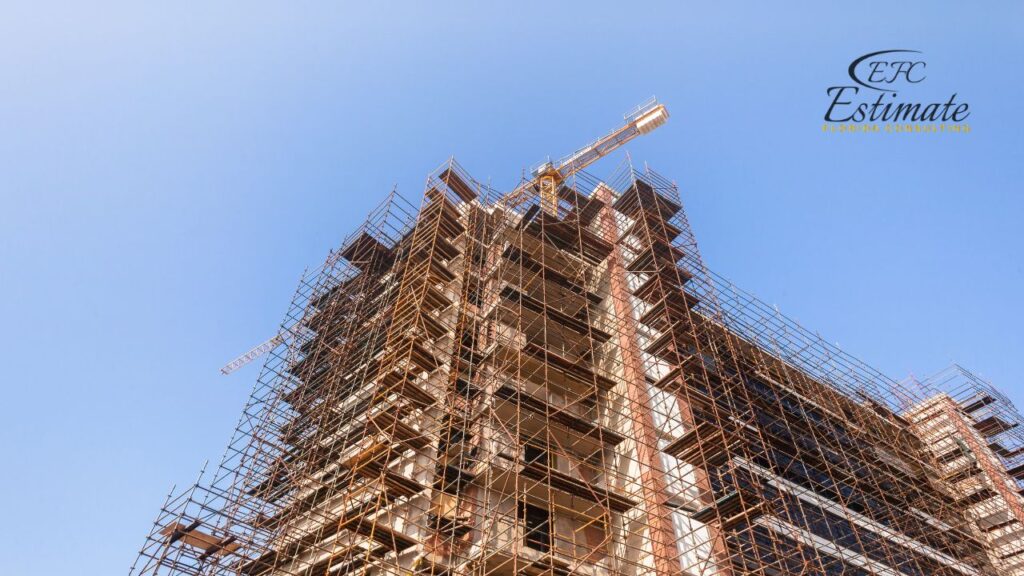
These professionals can provide invaluable guidance on navigating building codes and zoning requirements, ensuring your project design meets all legal standards.
Regular Communication with Authorities: Maintain open lines of communication with the City of Gainesville’s Building Department and other relevant municipal agencies. Regular check-ins can keep your project on their radar, facilitate smoother permit processing, and provide direct access to clarifications and updates on regulatory changes.
Need Template For Your Construction Business
We provide services for Brochure, Banner, Business Card, Envelope, Invoice, etc.

Benefits of Compliance
Avoiding Delays and Penalties: Adhering to building codes and zoning laws from the outset of your project can significantly reduce the risk of delays caused by compliance issues and the need for expensive corrections. It also avoids potential fines and legal challenges that can arise from non-compliance.
Enhancing Project Value and Sustainability: Compliance with Gainesville’s regulations ensures not only the safety and legality of your construction project but also its sustainability and efficiency. Many of Gainesville’s building codes are designed to promote energy efficiency and environmental protection, which can enhance the long-term value and appeal of your project.
Improved Labor Availability: Scheduling your project during less busy times means you’ll have better access to skilled labor, allowing for more selective hiring and the potential to secure highly sought-after contractors who can bring added value to your project.
Quality Workmanship: Contractors working on fewer projects can afford to dedicate more attention to each task, potentially improving the overall quality of work. The less hurried pace of off-peak seasons also reduces burnout among crews, contributing to higher quality finishes.
Navigating the Approval Process
The permit approval process in Gainesville involves submitting detailed plans and documentation for review by city officials. This process can vary in complexity, depending on the project’s size and scope. Anticipating and preparing for these requirements can help ensure that your project moves forward without unnecessary delays.
Conclusion
In conclusion, navigating construction costs and regulations in Gainesville requires a comprehensive understanding of various factors, including market trends, labor costs, regulatory compliance, and site-specific considerations. At Estimate Florida Consulting, we specialize in providing accurate cost estimates tailored to the unique needs of our clients. By staying informed about local developments, leveraging off-peak construction cycles, and prioritizing compliance with building codes and zoning laws, stakeholders can optimize budgets and ensure successful project outcomes in Gainesville’s dynamic construction landscape. Whether it’s residential, commercial, or public infrastructure projects, our expertise and commitment to excellence empower clients to make informed decisions and achieve their construction goals efficiently and cost-effectively.
Choose Your Trade & Get a Sample Project
FAQs
The average cost of building a house in Gainesville varies depending on factors such as the type, size, and finishes of the project. However, nationwide averages suggest costs ranging from $250,000 to over $5,080,000 or more. Specific estimates can be provided based on the project’s requirements and desired level of customization.
Construction costs for a 2500 sq.ft house in Gainesville can vary based on factors such as the construction phase (basic, standard, high-end finishes), labor rates, material costs, and design complexity. Estimated costs per square foot range from $100 to $250 or more, with total estimated costs falling within the ranges provided for each construction phase.
Several factors influence construction costs in Gainesville, including market trends, material costs, labor rates, regulatory compliance, site-specific considerations, and the extent of customization desired. Understanding these factors is crucial for accurate budgeting and successful project management.
Optimizing your construction budget in Gainesville involves several strategies, including staying informed about local developments, leveraging off-peak construction cycles for cost savings, choosing reputable contractors and suppliers, and prioritizing compliance with building codes and zoning laws. These approaches can help you achieve your construction goals efficiently and cost-effectively.
The permit approval process in Gainesville involves submitting detailed plans and documentation for review by city officials. The complexity of the process can vary based on the project’s size and scope. To navigate it effectively, it’s essential to anticipate and prepare for regulatory requirements, maintain open communication with municipal agencies, and seek guidance from local experts familiar with Gainesville’s regulatory landscape.
Process To Get Construction Cost Estimate Report
Here I am going to share some steps to get your construction Cost estimate report.
-
You need to send your plan to us.
You can send us your plan on info@estimatorflorida.com
-
You receive a quote for your project.
Before starting your project, we send you a quote for your service. That quote will have detailed information about your project. Here you will get information about the size, difficulty, complexity and bid date when determining pricing.
-
Get Estimate Report
Our team will takeoff and estimate your project. When we deliver you’ll receive a PDF and an Excel file of your estimate. We can also offer construction lead generation services for the jobs you’d like to pursue further.
Google Reviews










